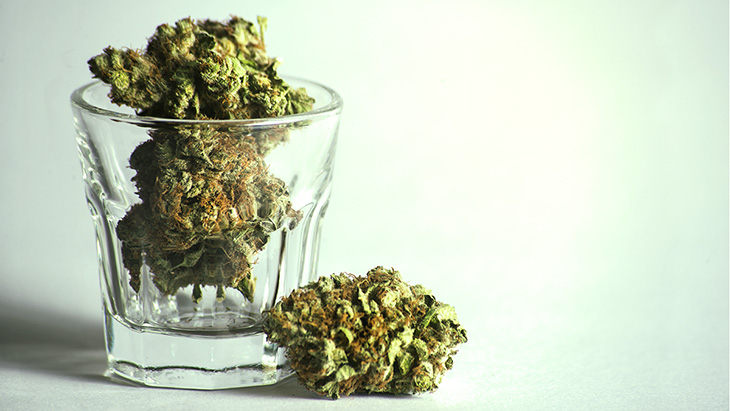[ad_1]
South Dakota’s voter-initiated medical cannabis law took effect today. Seventy percent of voters approved the ballot initiative, Measure 26, on Election Day.
Although patients are not anticipated to begin receiving state-issued identification cards or to be able to access cannabis products from state-licensed dispensaries until at least this fall, the South Dakota Department of Public Safety issued guidelines today for law enforcement requiring them to cease arresting those persons who identify as patients and meet certain qualifications.
Specifically, the guidelines stipulate that members of the Highway Patrol “will not, at the scene of a stop or interaction, arrest a South Dakota resident who is unable to present an unexpired medical cannabis card,” as long each of the following apply:
- The individual possesses no more than three ounces of natural and unaltered marijuana, as defined by SDCL 22-42-1;
- The individual claims at the time of the interaction that the medical cannabis is to treat or alleviate a debilitating medical condition as defined by the Department of Health;
- The individual produces printed or electronic documentation relative to the debilitating medical condition from a licensed medical doctor.
In addition, Highway Patrol personnel will no longer arrest nonresident cardholders for the possession of cannabis, nor will they seize the cannabis or any associated paraphernalia, if the following applies:
- The cardholder presents an unexpired medical cannabis card issued by another state; and
- He or she possesses no more than three ounces of natural and unaltered cannabis, as defined by SDCL 22-42-1.
Under the state’s nascent program, patients with “a chronic or debilitating disease or medical condition,” including AIDS/HIV, ALS, cancer, Crohn’s disease, epilepsy, glaucoma, multiple sclerosis, or post-traumatic stress, are eligible to receive an authorization from their doctor to possess medical cannabis.
Additional information on the program is available from the state of South Dakota here.
Related
[ad_2]
Source link
Medical Disclaimer:
The information provided in these blog posts is intended for general informational and educational purposes only. It is not a substitute for professional medical advice, diagnosis, or treatment. Always seek the advice of your physician or other qualified healthcare provider with any questions you may have regarding a medical condition. The use of any information provided in these blog posts is solely at your own risk. The authors and the website do not recommend or endorse any specific products, treatments, or procedures mentioned. Reliance on any information in these blog posts is solely at your own discretion.







